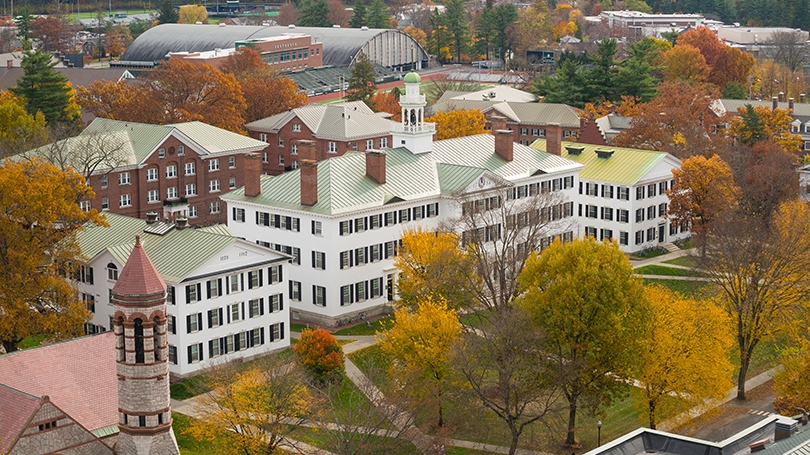
Photo by Eli Burakian ’00
Hanlon has joined other university presidents in signing a statement in support of DACA.
Dartmouth will work to mitigate any effects on undocumented students caused by changes in laws or the application of existing laws or policies, including possible revisions to a federal policy that protects from deportation some undocumented individuals who came to the United States as children, President Phil Hanlon ’77 said in an email sent today to students, faculty, and staff.
President Hanlon wrote that Dartmouth has been a strong supporter of the Deferred Action for Childhood Arrivals policy, known as DACA.
“This commitment is not new,” he wrote. “The College was one of the few universities to file a U.S. Supreme Court friend-of-the-court brief supporting DACA’s expansion.” The brief was filed this past March.
In addition, Hanlon today joined other university presidents in signing a statement in support of DACA. The signers are asking colleagues and leaders from business, civic, religious, and nonprofit groups to join them in their advocacy.
“To our country’s leaders we say that DACA should be upheld, continued, and expanded,” the statement says. “This is both a moral imperative and a national necessity. America needs talent—and these students, who have been raised and educated in the United States, are already part of our national community. They represent what is best about America, and as scholars and leaders they are essential to the future.”
In his community email, Hanlon wrote that as the country and the campus community experience uncertainty during the presidential transition, he wanted to affirm “principles that are the foundation of our institution, and to declare our commitment to all members of our community regardless of their citizenship.”
“I realize that at this moment, some members of our community feel vulnerable and at risk. Let me assure you that we will work within the bounds of the law to mitigate any effects on our students caused by possible revisions to DACA and other immigration policies,” he wrote.
He said faculty and students had asked him this week to ensure the safety of undocumented students at Dartmouth, and reassert the College’s commitment to increasing diversity and promoting inclusiveness on campus.
“Let me stress without reservation that our learning community is enriched by the diverse backgrounds of the women and men who study, teach, and work on our campus. You broaden our understanding of our world and your presence leads to the best educational outcomes for us all. Indeed, many of you have worked hard in the last year to increase diversity at Dartmouth and to make all feel welcome through our Inclusive Excellence initiative.”
The College admissions and financial aid policies do not consider domestic applicants’ immigration status. And once matriculated, undocumented students at Dartmouth receive support from faculty and staff in a number of departments, including the pluralism and leadership office, undergraduate deans’ office, and the visa and immigration services office.